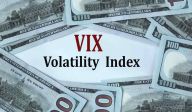Featured articles

Why Michael Burry just sold all his stocks
Michael Burry just sold over $70 million in stock, liquidating his entire portfolio except for one stock, doubling down on a company that other investors are fleeing in droves.
15:28, 18 July 2025

Euro forecast 2025-2030: Third-party targets
EUR/USD is trading at 1.17648 as of 10:26 UTC on 9 September 2025, holding near the upper end of its intraday range of 1.1706-1.1779 amid broad-based US dollar weakness.
09:44, 16 September 2025

Crypto CFDs: Popular cryptocurrencies for trading
Discover which cryptocurrencies are trending for CFD trading in 2025 – from bitcoin to newly listed coins like SUI and PEPE.
10:46, 31 July 2025

Salesforce stock forecast: Third-party targets
Salesforce (CRM) was trading at $254.05 in early trading on 10 September, after moving within an intraday range of $252.05 to $254.20.
13:07, 16 September 2025

Alphabet stock forecast 2025-2030: Third-party predictions
Alphabet (GOOG) was trading at $166.80 at 15:51 UTC, within the day’s $164.66-$171.40 range. The price is holding mid-range in the session (8 September 2025).
16:20, 15 September 2025

Oracle stock forecast 2025-2030: Third-party price target and future outlook
Oracle (ORCL) is trading at $238.60 on 8 September 2025 at 11:59 UTC, just below its intraday high of $239.04 and above the day’s low of $222.91.
13:53, 15 September 2025

Trading the Nasdaq 100 Over 24,000
Another milestone for the tech-heavy index helps keep the technical overview bullish, but in sentiment it’s a story of opposing bias when it comes to CoT speculators and Capital.com’s clients.
10:10, 15 September 2025

Volatility index forecast: Third-party VIX price target
Discover the Volatility Index forecast for 2025 and beyond, with third-party analysts’ VIX targets and more.
08:31, 16 September 2025

Trading the Nasdaq 100 Over 24,000
Another milestone for the tech-heavy index helps keep the technical overview bullish, but in sentiment it’s a story of opposing bias when it comes to CoT speculators and Capital.com’s clients.
10:10, 15 September 2025

Trading the Dow 30 After a Weak NFP
The technical overview remains unchanged in both daily and weekly time frames, while in sentiment CoT speculators raised their net sell bias.
10:34, 8 September 2025

US 500 index forecast: Third-party US 500 price target
Discover the US 500 (US 500) index price forecast for 2025 and beyond, with analyst price targets and more.
12:59, 5 September 2025

Oil forecast: Third-party price targets
Discover the latest oil price forecast for 2025, with WTI and Brent crude outlooks, analyst targets and technical analysis.
12:34, 16 September 2025

Copper price forecast: Third-party predictions 2025-2030
Copper is a critical industrial and energy-transition metal, widely used in electrical wiring, plumbing, and HVAC systems within construction; as well as in power grids, electric vehicles, and renewable energy technologies.
02:44, 16 September 2025

An extremely rare signal just triggered on copper
A line can be drawn on copper's price chart starting in 2006, capturing one, two, three, four reactions over 19 consecutive years.
18:57, 13 September 2025

Five factors driving gold to record highs
Major tailwinds are pushing gold to new all-time highs.
13:49, 4 September 2025

Euro forecast 2025-2030: Third-party targets
EUR/USD is trading at 1.17648 as of 10:26 UTC on 9 September 2025, holding near the upper end of its intraday range of 1.1706-1.1779 amid broad-based US dollar weakness.
09:44, 16 September 2025

Trading EUR/USD Amidst ECB and US CPI Events
It has been a story of relative calm and slight positive technical bias ahead of the fundamental events, with CoT speculators net long while Capital.com clients shift to the middle.
07:08, 11 September 2025

UK interest rate forecast for the next five years
Explore the UK interest rate forecast with third‑party predictions, trends, and a five‑year outlook for projected UK interest rates.
10:51, 8 September 2025

Australian dollar forecast: Third-party price target
What’s next for AUD/USD? Here’s our round-up of third-party Australian dollar forecasts, with analysts’ insights, price history, and forex rate drivers for CFD traders.
19:56, 18 August 2025

Sui price prediction 2025-2050: Third-party SUI insights
Sui (SUI) is a layer-1 blockchain developed by Mysten Labs to support high transaction throughput and fast finality through its customised version of the Move programming language, called Sui Move.
09:21, 16 September 2025

Fartcoin price prediction 2025-2050: Third-party FARTCOIN insights
Fartcoin is a Solana-based memecoin that launched in October 2024, combining internet culture with meme-led appeal and community engagement.
08:52, 16 September 2025

Trump coin price prediction 2025-2050: Third-party TRUMP insights
Read our Official Trump coin price prediction for 2025 and beyond, with TRUMP insights from third-party analysts and market experts.
08:31, 8 September 2025

Shiba Inu price prediction 2025-2050: Third-party SHIB insights
Read our Shiba Inu price prediction for 2025 and beyond, with SHIB insights from third-party analysts and market experts.
12:18, 5 September 2025
